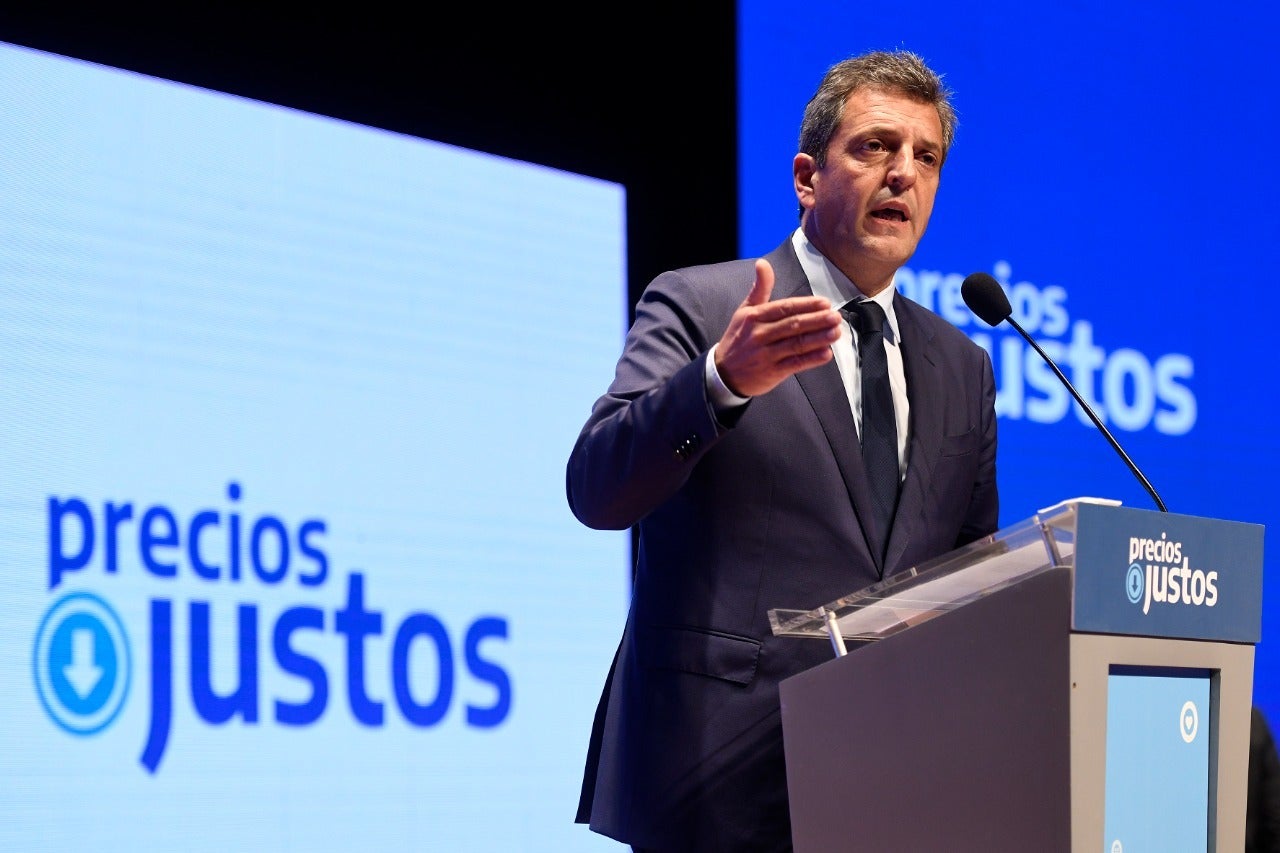
Argentina’s government has reportedly reached an agreement with supermarkets to limit monthly food price increases to a maximum of 5% for 90 days in an attempt to tame inflation.
Government officials settled on a deal with 31 representatives of local supermarket chains to “stabilise” prices until Argentina’s national elections in October, Reuters quoted economy minister Sergio Massa as saying last week.
Massa is running for president as the candidate of the ruling Peronist coalition after winning the nomination to run more than a week ago. Reuters said his two opponents are the ‘radical libertarian Javier Milei, the top vote getter in the nationwide primary, and center-right hopeful Patricia Bullrich’.
Argentina’s government had also taken other steps to slow down the country’s hyper-inflation, which reached 113% in July, including a freeze on fuel prices until 31 October. The local currency has also taken a pounding.
“The objective of this deal is to prevent the variation in the official exchange rate – which responds to an (International Monetary Fund) condition – from being transferred to the prices of mass consumption products, negatively impacting the pocket books of all Argentines,” Reuters quoted from the ministry’s statement.
The government will consider tax benefits for supermarkets that do not raise prices above the 5% per month, and offers a credit programme for small- and medium-sized companies that supply supermarkets, the statement added.
In October last year, the government of Argentina had announced the extension of its ‘Precios Cuidados’ programme, which regulates prices for items typically sold in supermarkets, including certain food and pet-food items, as well as cleaning and hygiene and toiletry products.
The ministry of production had made an agreement with over 100 national and international companies for 1,321 products to remain under the initiative.
The programme was extended until 7 January 2023, with the promise of quarterly revisions.
Elsewhere, Hungary had ended its price cap scheme on basic food items from 1 August on expectations inflation would slow.
The Hungarian government introduced the price-cap scheme in October 2021 to ease the pressure on consumers facing rising food costs. One of the new measures announced in June by Gergely Gulyas, the head of the prime minister’s office, was an increase in the so-called mandatory discount scheme from 1 August 2023.
